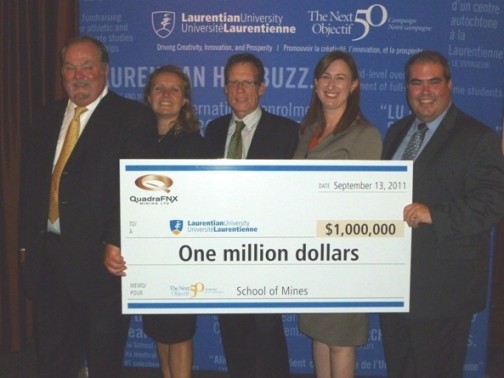This article was provided by the Ontario Mining Association (OMA), an organization that was established in 1920 to represent the mining industry of the province.
Ontario Mining Association member Vale Canada has taken a big step to strengthen Sudbury’s social safety net with a $500,000 donation to the Banque d’aliments Sudbury Food Bank Capital Campaign. The company and its employees have been supporting initiatives of this nature in the community for 23 years. This half-million-dollar contribution boosts the Sudbury Food Bank’s level of funds raised to $1.5 million — closer toward the $1.8 million capital campaign goal.
“Vale has proud history of support for the Sudbury Food bank and we are pleased to provide this donation toward its new warehouse, which will allow for more effective storage and distribution of food to those in need in the community,” said Tito Martins, Chief Executive Officer of Vale Canada. Mr. Martins also serves as Honourary Chair of the Sudbury Food Bank.
“This donation of $500,000 brings our campaign a large step closer to success,” said Geoffrey Lougheed, Chair of the Sudbury Food Bank. “The personal commitment of Mr. Martins to serve as Honourary Chair will provide leadership and inspire others to bring this campaign over the top. Both Mr. Martins and Vale have put their goodwill into action and the Sudbury Food bank is grateful for this outstanding dedication to feed the hungry.”


























